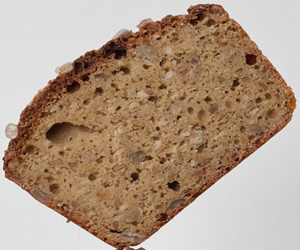


Sip Your Way To Health And Vitality

In a world where sugary, empty-calorie drinks dominate, the concept of nutrient-dense refreshment is a breath of fresh air. These revitalizing beverages are not only delicious but also packed with essential vitamins, minerals, and other health-boosting compounds. Nutrient-dense refreshments offer a way to quench your thirst and nourish your body simultaneously, making them an ideal choice for those seeking a healthier lifestyle.
Understanding Nutrient-Dense Refreshment
Nutrient-dense refreshments are beverages specifically designed to provide a substantial amount of essential nutrients with each sip. These drinks are often made from a thoughtful selection of whole, natural ingredients that offer a wealth of vitamins, minerals, antioxidants, and other beneficial compounds. By choosing nutrient-dense refreshments, you can give your body the nourishment it craves while staying hydrated and refreshed.
A Treasure Trove Of Vitamins And Minerals
One of the primary benefits of nutrient-dense refreshments is their ability to deliver a substantial dose of vitamins and minerals. For instance, green smoothies loaded with leafy greens like spinach and kale provide essential vitamins such as A, C, and K, along with minerals like potassium and magnesium. These nutrients play a pivotal role in supporting your immune system, promoting healthy skin, and maintaining proper muscle and nerve function.
Antioxidant-Rich Elixir
Antioxidants are like the superheroes of the nutrition world, defending your body against free radicals and oxidative stress. Nutrient-dense refreshments are often teeming with antioxidants derived from fruits, vegetables, and superfoods like berries, beets, and turmeric. These antioxidants help protect your cells from damage, reduce inflammation, and support your overall health.
Fiber For Satiety And Digestive Health
Many nutrient-dense refreshments are rich in dietary fiber, which offers several benefits. Fiber enhances feelings of fullness, making these beverages a satisfying choice for those looking to manage their weight. Additionally, fiber promotes digestive health by preventing constipation, reducing the risk of certain digestive disorders, and supporting a balanced gut microbiome.
Hydration With A Nutritional Boost
Staying hydrated is essential for overall well-being, and nutrient-dense refreshments offer a delightful way to meet your daily fluid intake goals. Instead of sugary sodas or artificially flavored drinks, you can enjoy refreshing beverages like infused water with lemon and mint, which not only quench your thirst but also provide a subtle dose of essential nutrients.
Customizable And Versatile
One of the significant advantages of nutrient-dense refreshments is their versatility. You can customize them to your preferences and nutritional needs. Whether you prefer a protein-packed smoothie, a hydrating coconut water with a twist of lime, or a revitalizing herbal tea, the possibilities are endless. This versatility makes it easy to find nutrient-dense refreshments that suit your taste and dietary requirements.
Nutrient-dense refreshment isn't just a fleeting trend; it's a cornerstone of a healthier lifestyle. By incorporating these beverages into your daily routine, you can easily nourish your body with the vitamins, minerals, and antioxidants it craves. Nutrient-dense refreshments are an enticing way to prioritize your health, boost your energy levels, and reduce the risk of chronic diseases. So, the next time you're feeling thirsty, consider reaching for a nutrient-dense refreshment, and you'll be making a conscious choice to enrich your well-being while enjoying the delicious flavors of a healthier life.
More Than A Caffeine Fix
 In Italy, coffee culture is synonymous with the espresso, a concentrated shot of liquid gold that Italians consume multiple times a day. The espresso bar, or "caffe," is not just a place to get a quick caffeine fix; it's a social hub where people gather to chat, argue, and take a moment to savor life.
In Italy, coffee culture is synonymous with the espresso, a concentrated shot of liquid gold that Italians consume multiple times a day. The espresso bar, or "caffe," is not just a place to get a quick caffeine fix; it's a social hub where people gather to chat, argue, and take a moment to savor life.
In the Middle East, coffee culture revolves around the intricate art of brewing and serving Turkish coffee. This finely ground, strong brew is not merely a pick-me-up; it's a gesture of hospitality and a symbol of cultural identity. The brewing process itself is a mesmerizing dance of tradition and ceremony.
Scandinavia, on the other hand, has redefined coffee culture with its embrace of the minimalist and Scandinavian concept of "hygge." Scandinavian cafes are known for their clean lines, cozy atmospheres, and a focus on quality over quantity. They take the time to appreciate the simple pleasure of a well-brewed cup.
The specialty coffee movement in the United States has revolutionized coffee culture, elevating it to a level of precision and craftsmanship previously unseen. Coffee lovers have become connoisseurs, scrutinizing everything from bean origin and roast level to brewing methods and latte art. It's a culture that values transparency and the connection between farmers, roasters, and baristas.
In Australia, the flat white is the king of coffee culture. This creamy, velvety espresso-based drink has a devoted following.


A Culinary Journey Of Sensory Delights
 The Appeal Of Flavorful Feasts
The Appeal Of Flavorful Feasts
Why are flavorful feasts so appealing? Here are some compelling reasons:
1. Celebration: Flavorful feasts are often associated with special occasions, holidays, and gatherings. They serve as a way to commemorate and celebrate the moments that matter most.
2. Variety: These feasts offer a diverse selection of dishes that cater to different palates. From savory to sweet, from mild to spicy, there's something for everyone to enjoy.
3. Connection: Preparing and sharing a flavorful feast can strengthen bonds and create a sense of connection. It's a communal experience that fosters togetherness.
4. Sensory Delights: The combination of flavors, aromas, and textures in a flavorful feast creates a sensory adventure. It's a delightful exploration of the culinary world.
Transforming Your Life For The Better
 Lifestyle change is a concept that holds the potential to redefine our well-being, relationships, and overall quality of life. It involves a deliberate and conscious shift in one's habits, behaviors, and choices, often with the aim of improving health, happiness, and fulfillment. Whether you're seeking to overcome challenges, enhance your personal development, or simply find a better path in life, lifestyle change is a powerful tool to help you accomplish these goals.
Lifestyle change is a concept that holds the potential to redefine our well-being, relationships, and overall quality of life. It involves a deliberate and conscious shift in one's habits, behaviors, and choices, often with the aim of improving health, happiness, and fulfillment. Whether you're seeking to overcome challenges, enhance your personal development, or simply find a better path in life, lifestyle change is a powerful tool to help you accomplish these goals.
The Catalyst For Change
Lifestyle change often begins with a catalyst, a moment of realization that prompts you to reevaluate your current situation. It could be a health scare, a feeling of stagnation, or a desire for greater self-fulfillment. Whatever the trigger, it serves as a powerful motivation to embark on a journey of transformation.
Setting Clear Goals
The first step in making a lifestyle change is setting clear and realistic goals. Whether your focus is on health, career, relationships, or personal growth, defining what you want to achieve is essential. These goals provide a sense of direction and purpose, making it easier to stay on course during the change process.
Identifying And Breaking Habits
Lifestyle change often involves breaking old habits and adopting new ones. This can be a challenging endeavor, as habits are deeply ingrained behaviors.
A Guide To Healthy And Inclusive Eating
 Religious And Cultural Practices: Many people adhere to specific dietary guidelines dictated by their religious beliefs or cultural traditions. For example, Muslims observe halal dietary laws, while Hindus may avoid beef due to religious beliefs.
Religious And Cultural Practices: Many people adhere to specific dietary guidelines dictated by their religious beliefs or cultural traditions. For example, Muslims observe halal dietary laws, while Hindus may avoid beef due to religious beliefs.
Health And Lifestyle Choices: Some people adopt dietary restrictions as a part of a healthy lifestyle. This includes vegetarianism, veganism, or gluten-free diets, often motivated by environmental concerns, animal welfare, or gluten-related health issues like celiac disease or gluten sensitivity.
Medical Conditions: Certain medical conditions, such as diabetes, require dietary restrictions to manage blood sugar levels effectively. Patients with kidney disease may need to limit their potassium and phosphorus intake.
Motivations Behind Dietary Restrictions
Health: Many dietary restrictions are motivated by health considerations. For example, a low-sodium diet can help manage high blood pressure, while a low-carb diet can be beneficial for individuals with diabetes.
Celiac Disease, Gluten Sensitivity, And Wheat Allergies
 Common symptoms of celiac disease include gastrointestinal issues like diarrhea, bloating, and abdominal pain, as well as fatigue, anemia, and skin rashes. However, it's important to note that some individuals with celiac disease may experience no noticeable symptoms, making diagnosis challenging. Long-term complications can include malnutrition, osteoporosis, and an increased risk of other autoimmune diseases.
Common symptoms of celiac disease include gastrointestinal issues like diarrhea, bloating, and abdominal pain, as well as fatigue, anemia, and skin rashes. However, it's important to note that some individuals with celiac disease may experience no noticeable symptoms, making diagnosis challenging. Long-term complications can include malnutrition, osteoporosis, and an increased risk of other autoimmune diseases.
Gluten Sensitivity
While celiac disease is a well-defined medical condition, gluten sensitivity, or non-celiac gluten sensitivity (NCGS), is a less clearly understood phenomenon. People with gluten sensitivity experience symptoms similar to those of celiac disease, such as abdominal discomfort, fatigue, and headaches, but do not test positive for celiac disease or wheat allergy. It is often referred to as a "diagnosis of exclusion."
The precise cause of gluten sensitivity remains unclear, but it is thought to be a distinct condition from celiac disease and wheat allergy. Many individuals with NCGS report feeling better on a gluten-free diet, although the mechanism behind these symptoms remains a topic of ongoing research and debate.